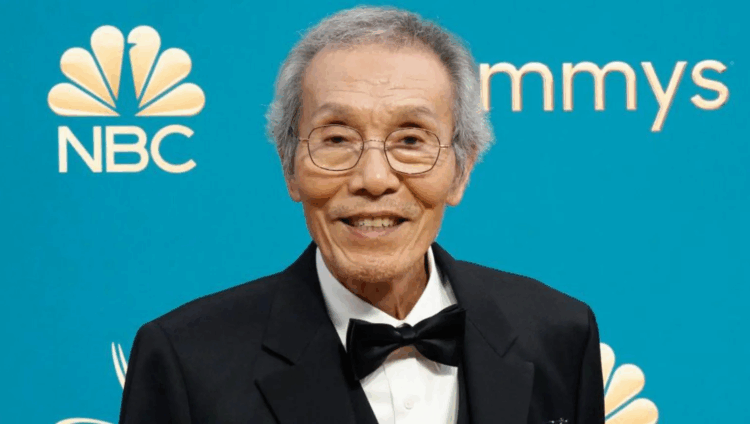Introduction: When Motherhood Becomes a Battleground
In the bustling, ever-evolving landscape of contemporary Nigerian cinema, “ABIAMO,” the much-anticipated 2025 Yoruba Nollywood drama was born. The Yoruba movie genre often serves as the cultural compass, pointing directly to the heart of societal anxieties and deep-seated traditions. Enter ABIAMO—the 2025 drama featuring a stellar lineup including Lola Idije, Mide Martins, Babatunde Aderinoye, and Ayo Adesanya. The film, whose title translates loosely to “Parenthood” or “The Mother’s Authority,” is more than just another family saga; it’s a high-stakes, deeply emotional examination of the crushing weight of expectation placed on Nigerian women, particularly concerning fertility and lineage.
Forget the simplistic narratives of the past. ABIAMO is an architectural masterpiece of pain, pride, and power struggle, meticulously directed to extract maximum emotional investment from its audience. It has arrived with the seismic impact of a cultural critique hidden within a blockbuster drama, quickly becoming the must-watch title of the year. This is not mere melo-drama; it is earned tension that leverages the gravitas of its veteran cast to deliver gut-wrenching performances. This is the definitive takedown of the cultural pressures surrounding motherhood, and trust me, you are not ready for the heat.
I. The Throne of Matriarchy: Lola Idije’s Reign of Terror
The Enduring Gravitas of Iya Adisa (Lola Idije)
Every great Yoruba tragedy requires a formidable antagonist, and in ABIAMO, that force is not a villain but a matriarch—Iya Adisa, brought to terrifying life by the legendary Lola Idije. Idije, a veteran whose career is etched into the very foundation of Nollywood, doesn’t just act; she embodies the power structure she represents. Her portrayal of Iya Adisa, a woman whose entire identity is forged in her role as the mother of the home’s heir, is a clinic in non-verbal communication.
The sheer weight of her scorn is conveyed not through shouting (though there is plenty of that), but through the subtle, agonizing movements of her head, the dismissive wave of her hand, and the chilling, slow blink of her eyes. One particular sequence—The Silent Dinner—serves as the perfect microcosm of her character. While the dialogue is minimal, the tension crackles as Iya Adisa pointedly ignores her daughter-in-law, Mide Martins’s character, making every untouched spoonful of food a commentary on her perceived failure. Lola Idije uses her stature to make the set shrink around her, forcing everyone else to play defense. Her performance is not merely good; it is a cultural artifact, demonstrating how old-school Nollywood stars command the screen through sheer presence and deeply internalized cultural mannerisms. She is the immovable object, and the film’s narrative engine runs solely on the fuel of her approval being withheld.
II. The Battle for Belonging: Mide Martins’s Emotional Core
Balancing Tradition and Trauma: The Performance of a Lifetime
If Lola Idije is the rigid tradition, Mide Martins is the emotional, modern soul struggling to bend without breaking. Martins plays the daughter-in-law, Simi, who finds herself at the centre of the ‘Abiamo’ crisis. Her challenge is monumental: convey the emotional toll of societal and familial judgment without resorting to theatrical excess.
Martins excels in depicting the character’s internal war. Simi is a modern woman, educated and independent, yet trapped by a tradition she cannot escape. Martins’s performance is defined by a desperate, weary hope. Her face, often stained with carefully controlled tears, becomes the viewer’s window into the crushing reality of infertility stigma. She perfectly captures the quiet desperation of trying to maintain decorum while her world is crumbling under the scrutiny of her mother-in-law.
In the pivotal Market Day Insult scene, where Iya Adisa publicly humiliates Simi, Martins’s reaction is not immediate outrage, but a slow, agonizing retreat into self-preservation. This nuanced reaction speaks volumes, highlighting the difference between a traditional Nigerian wife (who must endure) and a modern woman (who desperately wishes to fight back). Mide Martins doesn’t just act out Simi’s pain; she absorbs it, making her performance the vital emotional anchor that prevents the entire production from tipping over into pure melodrama. Her work here is a powerful argument for the continued evolution and depth of Nollywood acting.
III. Detailed Scene-by-Scene Breakdown: Architecture of Conflict
ABIAMO’s structural integrity is its triumph. The director, whose name may be less famous than the cast but whose vision is clear, meticulously crafts three key confrontation points that drive the narrative forward without relying on lazy plot devices.
A. The Confrontation: The Anniversary Demand
This scene occurs early in the second act. Simi and her husband (Babatunde Aderinoye) are celebrating their wedding anniversary. The mood is momentarily tender—a rare display of martial intimacy. The moment is violently shattered when Iya Adisa arrives, not with a gift, but with an ultimatum: a younger cousin must be introduced to the household to secure the lineage.
Analysis: This is a masterful stroke of pacing. It immediately establishes the stakes: the marriage is conditional, and love is secondary to legacy. Aderinoye’s performance as the weak-willed husband is crucial here. His silent, conflicted gaze—stuck between his wife’s pleading eyes and his mother’s iron will—perfectly encapsulates the dilemma of the Nigerian male heir. The scene concludes with a low, throbbing traditional drum beat, a metaphorical death knell for Simi’s happiness.
B. The Secret Revealed: The Hospital Records Leak
The climax of the second act is driven by a shocking revelation. After months of desperate, secret attempts at IVF, Simi finally receives good news. But before she can share it, a rival (Ayo Adesanya’s character, the scheming cousin) intercepts a critical piece of evidence—the hospital documents detailing Simi’s struggles.
Analysis: This sequence is a technical highlight. The director uses rapid cuts between Simi’s joyous preparations and the rival’s cold, calculated betrayal. The visual language shifts from warm, hopeful golds and yellows to harsh, unforgiving blues. Ayo Adesanya, often typecast in supportive roles, delivers a chillingly effective performance as the calculating threat. Her quiet triumph as she delivers the documents to Iya Adisa is more terrifying than any loud explosion of emotion. It solidifies the plot’s commitment to internal betrayal rather than external forces, making the family itself the ultimate source of misery.
C. The Climax: The Shrine of Ancestors
The final, emotionally exhaustive sequence is set at the family shrine, where Iya Adisa intends to execute her final, public move to displace Simi. The tension has been building for 90 minutes, and the resolution needs to be monumental. It is.
Analysis: The atmosphere is dense with smoke and tradition. The director avoids over-the-top spiritual effects, focusing instead on the human drama. It is here that Mide Martins unleashes the torrent of bottled-up emotion, delivering a blistering monologue about her worth beyond her womb. The scene is long, drawn-out, and required—it’s the catharsis the audience has been waiting for. Whether or not Simi triumphs is secondary to the fact that she finally claims her voice. The technical element of the scene—the close-up shots of Lola Idije’s face as her conviction finally wavers—is what sells the ending. It’s not a complete surrender, but a painful crack in the matriarchal armor.
IV. The Unseen Stars: Technical Prowess & Directorial Vision
Cinematography and Set Design: Authenticity over Gloss
For a Yoruba drama with such high stakes, the technical execution is surprisingly grounded. The cinematography favors natural light and deep shadow, lending the film a weighty, almost gritty texture that enhances the dramatic realism. Unlike some polished Nollywood productions, ABIAMO is not afraid of imperfection; it embraces the authentic, lived-in feel of a high-class, yet deeply traditional, Nigerian compound.
The set design, particularly Iya Adisa’s living room, is a powerful visual metaphor. It is simultaneously opulent (heavy velvet upholstery, expensive carvings) and stifling (cluttered, dark, overbearing), reflecting the suffocating luxury of the matriarch’s control. The director wisely uses long takes during dialogue to let the emotional intensity of the actors dominate, relying on their faces rather than rapid editing to maintain pace.
The Soundscape: The Heartbeat of the Home
The film’s soundscape is perhaps its most underrated asset. The music is not constant; it is used sparingly, almost exclusively traditional Yoruba percussion and string instruments. This is deliberate. The silence in the home is often filled only with the domestic sounds—the distant clatter of a pestle in a mortar, the creaking of a door, the soft, anxious breathing of Simi. These sounds are critical; they remind the audience that this is a domestic war, fought on the home front. When the music does swell, it is a mournful, haunting composition that perfectly underscores the theme of a legacy under threat.
V. Verdict: Why You Must Watch ABIAMO
ABIAMO is a critical success because it takes a familiar cultural theme and executes it with cinematic maturity and extraordinary performances. It’s not a perfect film—it occasionally succumbs to a pace that feels deliberately slow, perhaps in deference to the classic Yoruba storytelling style. But its flaws are dwarfed by its achievements.
The film stands as a bold commentary on the intersection of modern life and archaic, demanding traditions. It asks profound questions about what constitutes a family, what gives a woman value, and whether love can truly conquer the demands of lineage. The final sequence, where the entire family is forced to reckon with generations of unspoken expectations, is genuinely powerful and culturally resonant.
Target Audience: This film is essential viewing for fans of high-stakes, character-driven drama, those interested in contemporary African social commentary, and, most importantly, anyone who appreciates the sheer, undeniable force of Nigerian acting titans like Lola Idije and Mide Martins working at the absolute peak of their powers.
Call-to-Watch: Don’t just stream this movie—experience it. ABIAMO is a testament to the enduring power of Nollywood to tell deeply human stories that resonate far beyond the shores of Nigeria. Grab your biggest bowl of popcorn, settle in, and prepare for a drama that will live in your heart long after watching the movie. Go watch it now, and prepare to be emotionally wrecked.
#NollywoodTimes
#Nollywood
#YorubaDrama
#AbiamoMovie















Leave a Reply